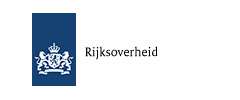States agree to mercury treaty talks
More than 140 countries agreed to launch negotiations establishing a treaty on mercury
20.02.2009 |Press Releases AFP and AP
NAIROBI (AFP) - More than 140 countries agreed Friday to launch negotiations establishing a treaty on mercury to limit pollution affecting millions of people across the world, the UN environment body said.
They also agreed an interim plan to curb pollution while awaiting the treaty because "the risk to human health was so significant that accelerated action... is needed," the United Nations Environment Programme (UNEP) said in a statement.
"Today we are united on the need for a legally binding instrument and immediate action towards a transition to a low-mercury world," UNEP chief Achim Steiner said at the end of the body's governing council meeting in Nairobi.
He added that world ministers who attended the week-long meeting "decided the time for talking was over. The time for action on this pollution is now."
The interim plan includes boosting countries' efforts on safe stockpiling of mercury, reducing supply and use among artisanal miners as well as reducing mercury in products such as thermometers.
Mercury is a heavy metal whose highly toxic compounds - propagated notably by the production of coal, certain kinds of plastics and improper disposal of fluorescent light bulbs - poison millions of people worldwide.
Fish-eating is the prime source of exposure among humans. The effects of mercury ingestion include damage to the brain, kidney and lungs.
--------------------------------------------------------------------
Environment ministers OK mercury treaty talks
Friday, February 20, 2009
NAIROBI (AP), Kenya - More than 140 countries agreed Friday to begin talks on a legally binding treaty to reduce mercury emissions worldwide.
The unanimous agreement, reached at a U.N. gathering of world environment ministers in the Kenyan capital, is a change from previous years, when major powers including the United States, China and India sought voluntary reductions. On Friday, they agreed to consider the binding treaty.
"This consensus is a huge breakthrough," said Elena Lymberidi-Settimo, co-coordinator of the Zero Mercury Working Group, a coalition of 75 environmental non-governmental organizations.
Formal negotiations on a treaty on mercury are set to begin next year and to conclude in 2013.
Mercury is widely used in chemical production and small-scale mining. The dense, toxic metal persists in the environment once released and can travel across the globe. Mercury collects in some species of fish, prompting health warnings in many countries.
While substitutes exist for almost all industrial processes that require mercury, more than 50 percent of mercury emissions come from coal-fueled power plants, making its regulation politically charged and extremely difficult.
The European Union has banned mercury exports effective 2011. The U.S. has a similar ban that will be effective 2013.
The Associated Press


































